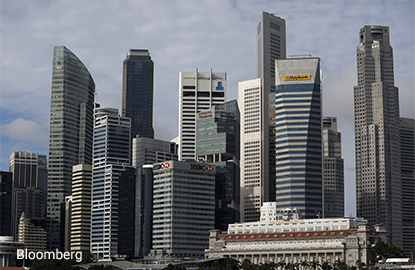
KUALA LUMPUR (May 18): A recent international study by global corporate law firm Eversheds LLP saw more than half of Singaporean board-level executives admitting failure in their anti-bribery and corruption policies in managing bribery.
The study was based on a survey on 500 board-level executives of large organisations across 12 countries, namely the UK, Brazil, China, Dubai, France, Germany, Hong Kong, Ireland, Italy, Singapore, Spain, and Switzerland.
All of the 50 board members interviewed in Singapore agreed bribery and corruption were important issues for their business. However, 86% confessed to uncovering corrupt business practices in their organisations while 56% admitted their anti-bribery policies do not work effectively. Moreover, only 28% of these board-level executives said they understood their organisations' anti-bribery policy.
These findings painted a contradictory picture where those at the top of companies recognised the seriousness of these issues — for both profits and reputation — but failed to back it up with adequate compliance programmes to prevent, monitor and manage corrupt behaviours, Eversheds said in a statement on May 11.
At 68%, potential impact on commercial success was the most frequent answer given when asked why bribery and corruption were significant issues while potential legal ramifications as the main reason was only a shocking 2%. Additionally, none of the respondents named prison sentences individuals may face when convicted, citing large fines as their biggest fear.
This was despite a number of high-profile prosecutions coupled with an increased focus by prosecutors to bring charges, highlighting that more severe punishments may not be the most effective way to combat corruption.
Eversheds Fraud and Investigations Group in Asia's principal associate Leonie Tear said, "The challenge for businesses in Singapore is to ensure their approach to anti-bribery and corruption is appropriate and commercially sensible. This means less reliance on policies and greater focus on creating the right culture and environment in which sound business practices can flourish."
Meanwhile, when asked if they would reject a business opportunity due to bribery or corruption, 28% of executives in China surveyed, answered that they neither agree nor disagree on the point.
However, Eversheds' outlook on the ongoing fight to combat bribery and corruption is positive, with Tear adding, "Until recently bribes were viewed by many as just the price of working in certain jurisdictions and sectors, but companies increasingly see bribery and corruption as being bad for business."
Eversheds provide services to the private and public sector business and finance community, advising clients on how to bring criminal prosecutions or civil actions in relation to bribery and corruption, and how do defend themselves against investigations, litigation and prosecutions brought by others.